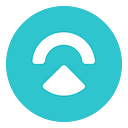The Benefits of Using Yes/No Task Cards in Special Education

In special education, teachers and therapists constantly seek innovative and effective instructional tools to engage and support students with diverse learning needs.
Yes/no task cards have emerged as a valuable resource in various settings, offering a simple yet versatile teaching approach and reinforcing crucial skills.
These cards facilitate interactive learning experiences, making them ideal for classrooms, therapy sessions, and home environments.
What are Yes/No Task Cards?
Yes/no task cards are an instructional tool that presents learners with questions or statements requiring a “yes” or “no” response.
Typically, these cards feature colorful visuals, brief texts, or pictograms that prompt students to answer using a simple affirmative or negative response.
This format allows for quick comprehension and encourages active participation, making it particularly useful for learners with diverse cognitive abilities.

Benefits of Yes/No Task Cards
Simplicity and clarity: Yes/no task cards use straightforward language and visuals, reducing cognitive overload and ensuring that learners can easily grasp the questions or statements presented. This makes them an ideal tool for students with diverse cognitive abilities, including those who may struggle with abstract or textual information.
Enhanced comprehension: The visual representation of concepts aids in comprehension, making it easier for students to participate actively and build confidence. This can be especially helpful for students reluctant to participate in traditional learning activities.
Interactive learning: Yes/no task cards encourage active participation, enabling students to practice their decision-making skills while maintaining engagement throughout the learning process. This can help to improve academic achievement and behavior management.
Personalized learning: These cards can be adapted to suit individual students’ needs, allowing educators and therapists to tailor the difficulty level and content to each student’s abilities. This ensures that all students have the opportunity to succeed, regardless of their learning styles or abilities.
Immediate feedback: With simple “yes” or “no” answers, students receive immediate feedback on their responses, promoting a sense of accomplishment and helping them build confidence. This can help to improve motivation and self-esteem.
Applications of Yes/No Task Cards
Classroom instruction: Yes/no task cards can be used in inclusive classrooms to support a variety of learning goals. For example, they can be used to:
- Differentiate instruction by providing students with different levels of difficulty.
- Assess student understanding by providing students with a variety of ways to respond.
- Introduce new topics in a fun and engaging way.
Therapy sessions: Yes/no task cards can be used in therapy sessions to target specific goals, such as:
- Language development by providing students with opportunities to practice vocabulary and grammar.
- Decision-making skills by providing students with opportunities to practice making choices.
- Auditory processing by providing students with opportunities to listen and respond to instructions.
Reinforcement and review: Yes/no task cards can be used to reinforce previous learning and review concepts. This can be done by:
- Having students complete a set of task cards after a lesson to assess their understanding of the material.
- Using task cards as a warm-up activity to introduce a new topic.
- Having students complete a set of task cards at the end of a unit to review the material.
Independent learning: Yes/no task cards can be used in independent learning settings to provide students with opportunities to practice skills independently. This can be done by:
- Creating an independent workstation where students can complete a set of task cards at their own pace.
- Providing students with a set of task cards to complete as homework.
Home learning: Yes/no task cards can be used by parents and caregivers to provide students with additional support at home. This can be done by:
- Using task cards as a fun and engaging activity to practice skills.
- Creating a task card library that students can access at their own convenience.
- Working with students to create their own task cards to target specific goals.
Conclusion
As educators and therapists continue to explore innovative methods to support the diverse needs of students with special educational requirements, yes/no task cards undoubtedly stand out as a practical and effective tool.
These cards are a versatile and engaging way to present information and assess understanding, making them a valuable resource for teachers, therapists, and parents.
